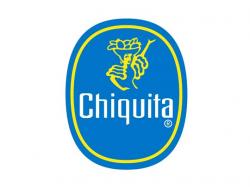Chiquita Celebrates 365 Days Of Sustainability
April 23, 2010 | 3 min to read

CINCINNATI, April 22 — As the world celebrates Earth Day, Chiquita Brands International (NYSE:CQB) reflects on global sustainability initiatives the company has championed, raising industry standards.
"Chiquita is a passionate, global corporate citizen and we take that responsibility to heart," said Fernando Aguirre, chairman and chief executive officer. "Through collaboration, energy and imagination Chiquita strives to turn each challenge we face into an opportunity to invest in a sustainable future – both for our company and for the environment. We continue to make green initiatives a priority, and challenge others to do the same because we're all shareholders in the well being of our planet."
Yellow is green on Chiquita's banana farms
Chiquita understands the value of a fresh set of eyes, because there is always room to improve. That was the idea in 1992 when Chiquita engaged in a sustainability relationship with the independent, third-party Rainforest Alliance (www.rainforest-alliance.org) and the Sustainable Agriculture Network.
Strict guidelines define the comprehensive farm certification process. As a result of certification Chiquita:
— Invested $20 million to improve facilities and infrastructures
— Planted approximately 1 million trees and bushes
— Adopted integrated crop management practices minimizing agrichemical
use
— Installed solid waste filters in all packing stations to minimize
organic material contamination of water
— Recycled 3,000 tons of plastic annually
— Protected forests and prohibited hunting on farms
To date, Chiquita stands alone as the only banana producer to achieve 100 percent certification of its company-owned farms, as well as nearly 100 percent of its total pineapple supply. To view the Rainforest Alliance case study on Chiquita, visit www.rainforest-alliance.org/profiles.cfm?id=agriculture.
A rainforest replanted
More than 100 hectares of natural terrain and indigenous animals are protected in Costa Rica. In 2004, Chiquita embarked on a journey, making land available to create a nature preserve in conjunction with Swiss retailer Migros and GTZ, the German government's development corporation, resulting in the Chiquita Nature & Community Project (www.nogalproject.ch) in Nogal.
The environmental mission is simple: conserve biodiversity and promote environmental education. Chiquita's impact goes beyond the sensitive biological corridors and protected areas; the company also assists people who call this land home to identify additional sources of income.
In March, Chiquita announced an expanded partnership to further strengthen sustainability and protect biodiversity in the San San Pond Sak reserve (www.tropenprojekt-panama.de/index.php?lang=en), situated close to Chiquita's banana farms in Panama and Costa Rica. To read more details about the joint effort between Chiquita, German retailer REWE, GTZ and Costa Rican banana industry body CORBANA, visit http://phx.corporate-ir.net/phoenix.zhtml?c=119836&p=irol-newsArticle&ID=13995 97&highlight.
Carbon footprint – forward-thinking steps
Chiquita learned early on the importance of partnering with the best to make sure the company is always working to be better. That's why Chiquita and The Massachusetts Institute of Technology (MIT) (http://ctl.mit.edu/news/carbon_and_energy_efficient_supply_chains) are conducting the most comprehensive carbon footprint assessment ever carried out on bananas in North America, Latin America and Europe with the goal of taking steps to reduce carbon emissions as bananas move from farm to table, and empower consumers with the information.
Chiquita stepped forward when the U.S. Environmental Protection Agency opened the door to participate in the SmartWay Green Transportation Program (www.epa.gov/smartway/index.htm). Since joining the program in 2007, Chiquita has realized a 16 percent improvement in emissions control within its banana transportation network – the equivalent to removing 110,000 cars from U.S. roads per year.
Chiquita is piloting ways to reduce daily water usage on selected banana farms, with the hope to set new standards that can be replicated on a larger scale. In 2008, the water recycling and purification systems became operational in 14 packing stations in Panama, Costa Rica and Guatemala. Early results are encouraging: The systems are capable of reducing water usage in each packing station by more than 8 million gallons annually. In addition, through the company's recycling efforts and lower use of plastic in packaging for Chiquita and Fresh Express products, plastic usage has been reduced by 1.9 million pounds.
Source: Chiquita Brands International Inc.
